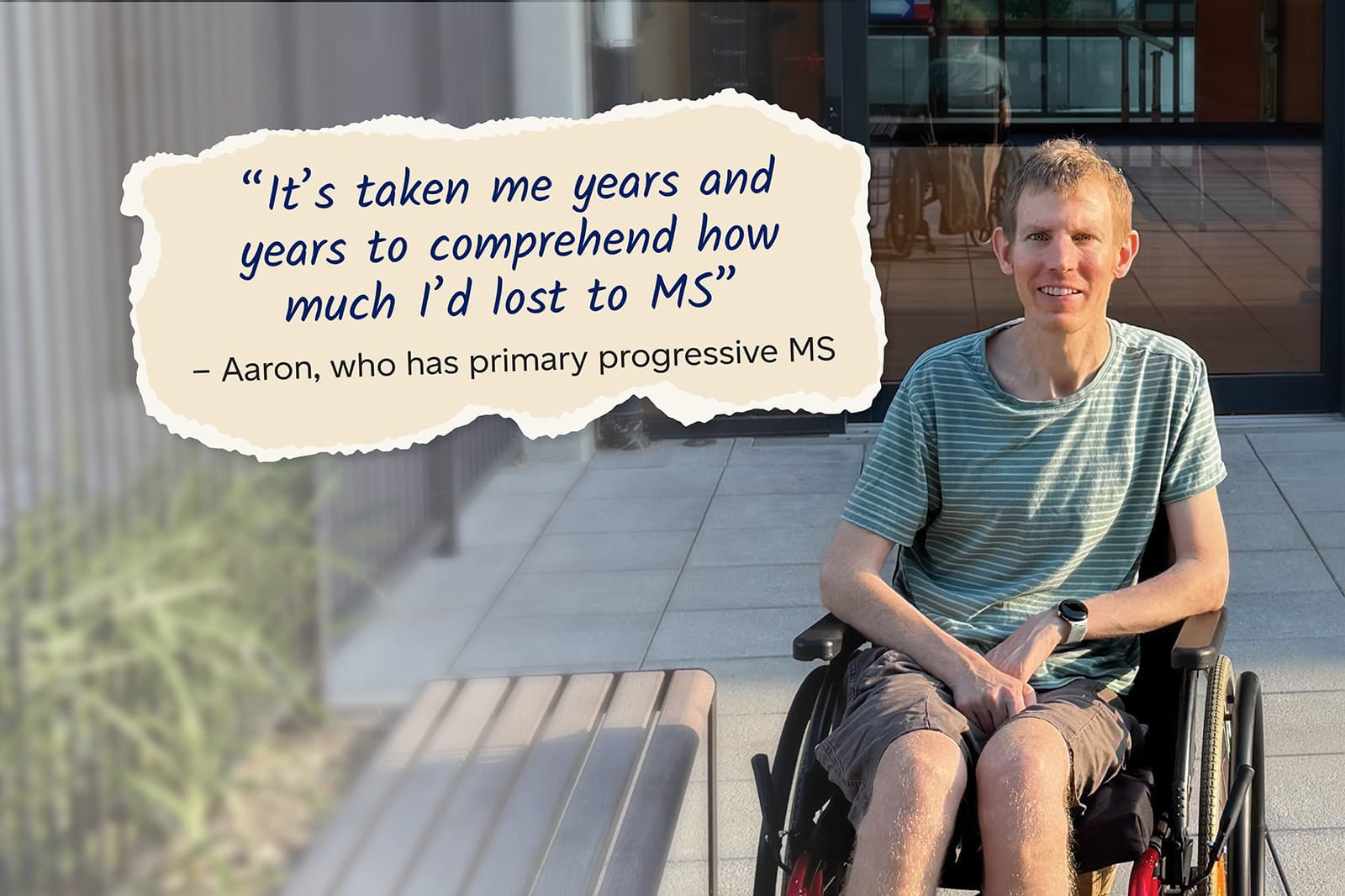MS is a complex condition that everyone experiences differently. For many people, MS symptoms can fluctuate from day to day, so it may be hard to know if changes are part of a relapse or not. The most common type of MS is relapsing remitting MS (RMMS), which is characterised by its relapses.
If you think you are experiencing an MS relapse (also known as an attack or flare up), please speak to your neurologist, an MS nurse or GP (general practitioner), as soon as possible. Even if you don’t think you need medical treatment, it’s important to report each relapse to your medical team. This helps them to ensure you are getting the right MS treatment for you, monitor patterns in your symptoms, track how MS is affecting you, and more accurately provide you with care and support.
Common MS relapse symptoms
- Worsening fatigue
- Weakness, particularly arms or legs
- Numbness and altered sensations
- Changes in thinking and concentration
- Loss of balance and coordination
- Changes in bladder function
- Eyesight problems, such as blurred or double vision.

How to recognise a relapse
- New symptoms appear or old symptoms get worse
- Symptoms last for at least 24 hours
- At least 30 days has gone by since your last relapse symptoms
- There must be no other reason for the symptoms, such as stress, heat or an infection
A relapse can include new rapid-onset symptoms or a slower but noticeable change over a few days. New symptoms may appear or existing symptoms get worse.
Relapse recovery varies depending on several factors. In most cases, it takes time for the inflammation to settle and to return to your previous baseline, or establish a new baseline.
When experiencing a relapse or flare up, it’s natural to feel a range of emotions, such as uncertainty, fear and confusion. You can take steps to manage relapses and plan for them, so they have less of an impact on your life and your wellbeing.
Signs it may not be a relapse
Symptoms may get worse for other reasons; this is called a pseudo relapse. The reasons can include:
- Infections
- Stress or tiredness
- Heat or cold
- Menstruation
- Long periods of inactivity or lack of exercise
How to manage a relapse
Relapse symptoms vary from person to person. Generally, symptoms gradually worsen over a few days before they reach a peak and then recover. Not all relapses need to be treated and may go away on their own. They could last for a few days or for several weeks.
Your health practitioner may treat the relapse itself or use management strategies for the symptoms. This could include a short course of steroids or other treatments. It may also include allied health services, such as:
- Physiotherapy
- Occupational therapy
- Neuropsychology
- Speech and language therapy
- Rehabilitation

Reduce your risk of relapses
Long-term disease modification therapies for MS will reduce the risk of relapses.
To reduce your chance of having a pseudo relapse, it’s worth reducing any potential triggers and looking after your general health. For example, regular exercise and eating a well-balanced diet can help you stay healthy and reduce the risk of triggers such as infections. Smoking may also increase your risk of relapses and your condition progressing.
Tips for relapses
- If you think you are experiencing a relapse, inform your medical team as soon as possible.
- If you don’t have an MS nurse, you can speak to one of our MS nurses by contacting 1800 042 138.
- Use a diary or app to keep track of how you’re feeling and any MS symptoms you’re experiencing.
- Give your body time to recover and heal with plenty of rest.
- Talk to your friends and family about how they can support you during these periods.
- Be kind to yourself. You don’t have to do it on your own. Call us on 1800 042 138 and we can help support you.
- If you’re working, speak to your employer about potential adjustments, such as working from home, having more flexibility in your day or temporarily reducing your hours. We can help you do this.
- Keep a list of people in your support network that you can call on from time to time.
- Learn more about managing a relapse via our online resource hub.
PDF, 146kb
This page has been reviewed and approved by Executive Manager Client Engagement and Wellbeing Jodi Haartsen. Jodi is a registered MS Nurse who has helped thousands of patients over her 20 years’ experience at Eastern Health MS service in Australia, in several roles including nurse educator, research nurse and nurse practitioner. Jodi is the 2022 winner of the global MS Brain Health Leader Awardopens in new tab in the Independent Healthcare Professionals category.
Learn more about MS
Support and services
We offer a wide range of services and support to help you manage your health and wellbeing – so you can maintain your lifestyle and achieve your goals.

Access changes everything for Aaron
Aaron found greater access to neurological care and independence at Lidcombe Home, featured in our Autumn Appeal.

Resource hub
Find everything you need to know about living with MS – from managing symptoms and your emotional health to navigating employment and the NDIS.

Speak to someone who understands

